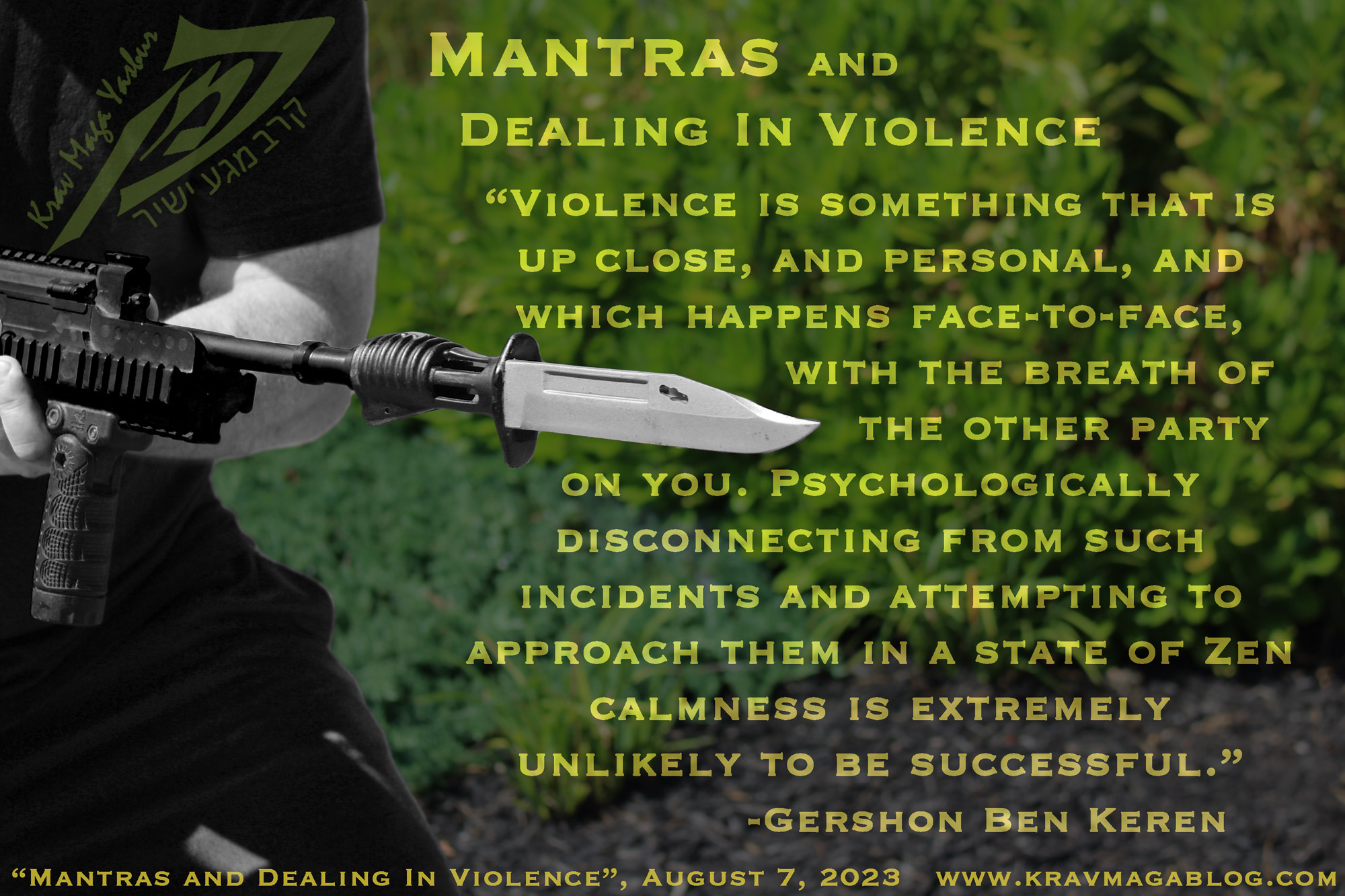The vast majority of human beings have a natural aversion to kill, even in combat settings where survival depends on killing another person. However, the further away – geographically - we are, and the less personal it gets, the easier it becomes e.g., it is easier to fire a mortar round, or drop a bomb, than it is to look a person in the eyes and pull a trigger etc., even though rationally we might know the consequences of each of these actions result in the loss of life. There is a “fatigue” and stress amongst many drone operators, who despite flying these aircraft from another continent, often observe their target(s) for days and even weeks before ending their life; they have gotten to know them as “people”, and despite rationally knowing that these individuals have committed heinous terrorist attacks against their fellow countryman, ending their life often doesn’t come easy. This isn’t a criticism, rather it is a celebration that most of us have an innate aversion to kill; and this makes us human. However, someone who takes on the role of a soldier has to overcome this. The UK army still conducts bayonet practice (or “sword” if you’re from certain regiments). Whilst many other militaries have abandoned the practice the UK has successfully used the bayonet in modern military conflicts and continues to train with it e.g., the Falklands War saw several “bayonet charges”, and in 2004 a detachment of the Argyll and Sutherland Highlanders engaged in a bayonet charge against a large group of insurgents in Iraq etc. However, perhaps the bayonets’ most important use is in training aggression. To an outsider it may seem overly theatrical to hear the answer “Kill! Kill! Kill!” to a sergeant’s question of “what’s the bayonet for?” But as those words are being shouted there is no room in the mind to question what is being done. The words fill it. All the moral doubts that may exist are lost to these three words. In this article I want to look at the importance of mantras and self-talk, when engaging in violence. I’m not suggesting that when we are having to physically deal with someone in a civilian setting that our intent should be to kill – it should be to create an opportunity that allows us to disengage safely – but rather we can use other words and phrases etc., to help us complete this task.
When you decide to use physical force (lawfully) against another person(s), you should be committed 100% to what you are about to do. This is why it is so important to have answered your moral and legal questions before you engage in violence. Once engaged there can be no room or time for doubts, all questions must have been answered. Part of learning to use the bayonet, is not questioning its use e.g., if a soldier crashes/bursts into a room and their weapon jams, there can be no question or hesitation about using the bayonet against an individual who means to kill them. Any questions about when and how to act have to be worked out during and after training. What is required in that moment is commitment. Whilst the stakes may not be as high concerning a verbal altercation in a bar or pub, all questions about how you should act and respond need to have been answered beforehand. An “it will be alright on the night” approach rarely leads to a successful and safe outcome; in such situations we rarely rise to the occasion. Whether you decide to act pre-emptively (the person’s actions constitute an “assault” and you recognize the inevitability of violence), or have to physically react to an attack, you want your mind to be focused on the task at hand. There can be no questions and no doubts about what you are doing i.e., you are looking to hurt and use violence against another person because you are in imminent danger yourself. Whilst such actions require full emotional commitment, your conscious mind will catch up, and start to ask questions. Hopefully these are “relevant” ones, such as “Where’s the nearest exit?”, “Is anybody else moving towards me looking to engage?” etc. These are positive, background questions that are relevant. However, often irrelevant, and insidious questions enter our thoughts e.g., “Is this legal?”, “Why am I not hurting them?”, “Do I have enough energy to keep doing this?” etc. This is where you need a mantra like, “Kill! Kill! Kill!”, to fill the void. As I have written before, in civilian settings, mine was/is, “Not me! Not me! Not me!”
The other value that having a mantra brings to the game is in controlling breathing. Many people, when engaging in violence, tend to hold their breath. It’s one of the reasons why people get exhausted so quickly in a fight. It’s not that they’ve expended so much energy, but rather the moment the physical conflict started, they stopped breathing. After a few seconds they’ve no oxygen in their lungs, and possibly no oxygenated blood in their brain. If there is one “fuel” that the body needs in abundance when engaged in a fight it is oxygen. Whilst breathing can be tied to striking e.g., you exhale when you strike, and/or deliver a combination etc., it can also be tied to your personal mantra, and in the moments when you’re not able to deliver strikes/punches, this may be the one thing that keeps you breathing. It can also be used to help regulate your breathing in the post-conflict phase (when you are no longer in imminent danger) where you need to bring everything back to stasis. By slowing down your internal recital of “Not me. Not me. Not me.” You can match your breathing to it, start to regulate your body’s state, and start to bring all of its processes back under control.
Violence is something that is up close, and personal, and which happens face-to-face, with the breath of the other party on you. Psychologically disconnecting from such incidents and attempting to approach them in a state of Zen calmness is extremely unlikely to be successful. Instead, you have to embrace that moment and lean into it. Whilst “Kill ! Kill ! Kill!” is an appropriate mantra when your goal is to end another person’s life, it isn’t necessary for most incidents and events that we are likely to have to deal with i.e., “Not me! Not me! Not me!” (or something similar), should suffice.
Share:

Gershon Ben Keren
2.8K FollowersGershon Ben Keren, is a criminologist, security consultant and Krav Maga Instructor (5th Degree Black Belt) who completed his instructor training in Israel. He has written three books on Krav Maga and was a 2010 inductee into the Museum of Israeli Martial Arts.
Click here to learn more.

